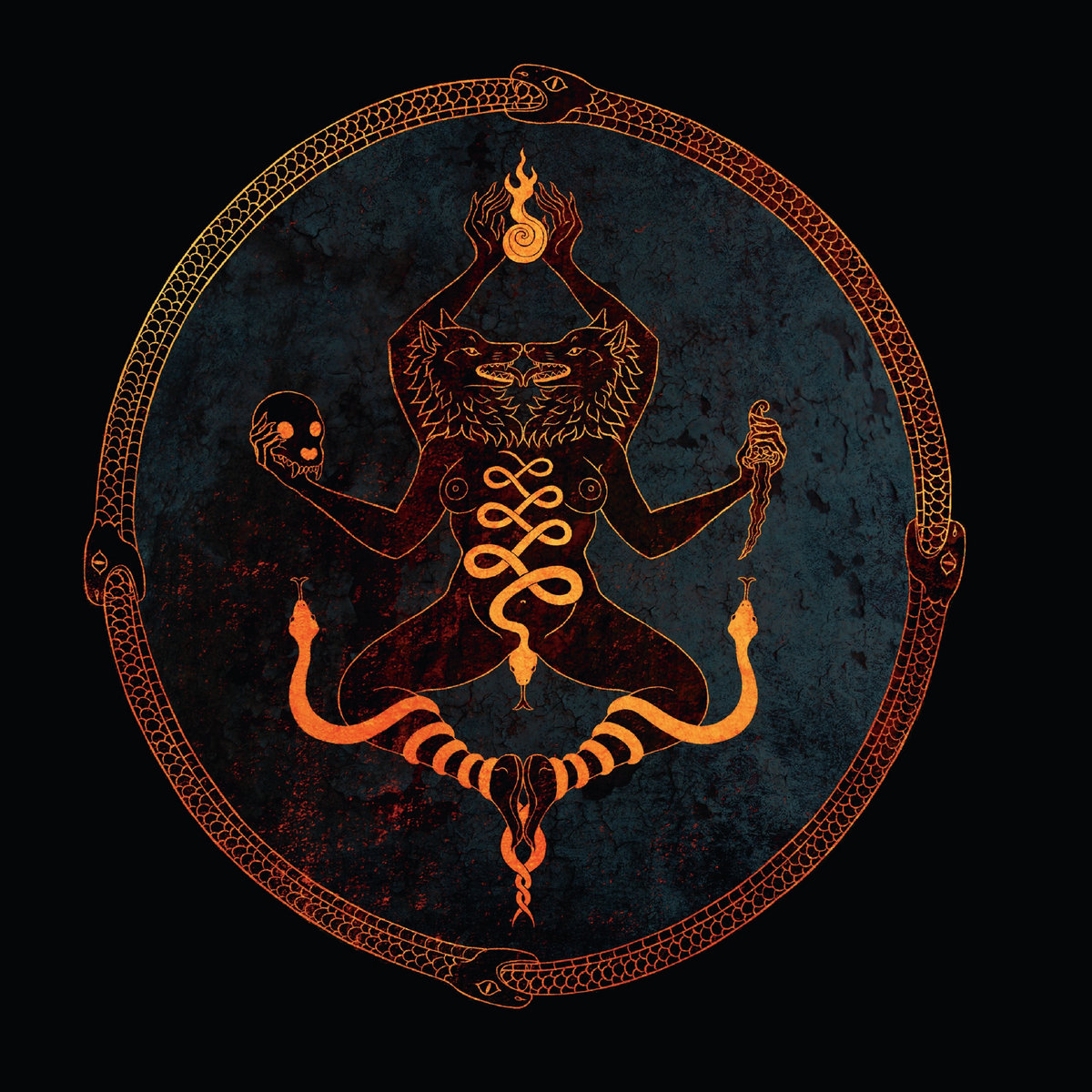
Since their creation in 2015, Belgium’s Wolvennest has offered listeners dense and hypnotic music that blurred the lines between black metal and doom with hints of krautrock, post punk, and other musical genres to create a dark and haunting atmosphere. 2018’s VOID pushed some of the post punk and other experimental elements outwards towards longer, droning arrangements, while the three-track Vortex EP a year later offered some of the most direct arrangements the band had written to date. For their latest effort Temple the band has moved back towards the former approach, giving listeners a sprawling hour and seventeen minute listen where layers spread outwards slowly and methodically, with occasional bursts of more direct intensity and aggression. At times it feels like Wolvennest spreads themselves just a bit too thin, but overall, the way that the atmosphere completely envelops you proves to be just as appealing as before.
An album that runs for this long can be a daunting prospect for any listener, especially when quite a bit of that time is spent spreading outwards slowly and with repetitive melodies and rhythms that are oriented to provide a hypnotic soundscape. Wolvennest is certainly no stranger to this approach, having cracked an hour on VOID, but here they make a point to let each song flow forth for as long as they deem necessary. Some of their prior discography felt like it was a slow burn that took some time to fully appreciate, and that’s definitely the case here, as the first two songs (“Mantra” and “Swear to Fire”) let the layers build slowly and have much more of a heavy psych or post punk tone on display that only occasionally gives way to more jagged and abrasive textures. Another element that has been emphasized more on Temple are the gothic elements, as the melodies channel just as much somber and dark beauty that brings various gothic bands to mind, which when combined with the psychedelic elements brings a different dynamics to Wolvennest’s ritualistic approach to songwriting. There are some truly stunning moments to be found here, such as the soaring melodic textures of “Alecto” or the one-two punch of “Succubus” and “Disappear” which let some additional black metal and doom elements into the mix. But admittedly some tracks overstay their welcome and numbers like “Swear to Fire” feel just a little too similar to what VOID had to offer, which dampens the impact a bit given the sheer length of the album.
Vocal duties are once again split between Shazzula and Déhà, with the pitches often skewing towards the melancholic and mysterious side. Similar to the band’s prior discography, the singing has a tendency to flow in and out of the layers of sound, sometimes taking the spotlight for a few minutes before being washed away by the dense and hazier melodies. It’s an interesting approach that may take a few times through to click for some people, but I’ve always found that it adds to the ambiance of the material and that continues to be the case here. One of the stand-out tracks is the aforementioned “Succubus” where Wolvennest brought in King Dude to perform, and he Déhà trade off with much lower pitched singing that brings things to full-on gothic psychedelia. Even though King Dude only appears on this one song, the somber and lower pitched singing style is continued on “Disappear” and really brings a different character to the end of the album.
I can’t help but admire Wolvennest’s ambition, as they’ve chosen to stay the course with lengthy, sprawling songwriting at a time when everyone’s attention spans seem to be shorter than ever. And while the pay off isn’t always there, there’s still a significant amount of depth and waves of darker psychedelia that will stick with listeners who spend the time needed to fully explore this album. For me it doesn’t quite reach the greatness of VOID but is still worth returning to, and if Wolvennest continues to push outwards towards even more gothic splendor I think they’ll find that sweet spot between droning rituals and more direct onslaughts. Temple is available from Ván Records.
-Review by Chris Dahlberg
If you enjoyed this article, be sure to share it with others to help us grow. You can also like and follow us on the social media of your choice with Facebook, Twitter, and Instagram, and support us on Patreon.